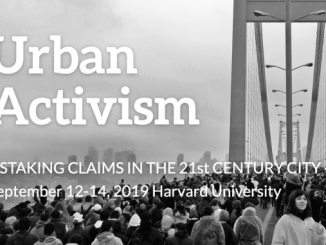
anthropological theory

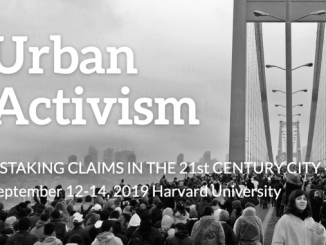
A conference on urban research and activism in the US
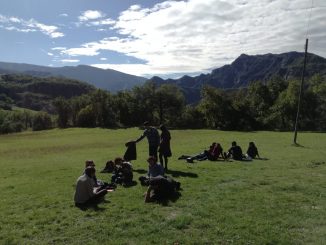
The second earthquake
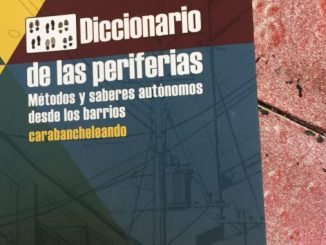
Knowledge is in the neighborhoods
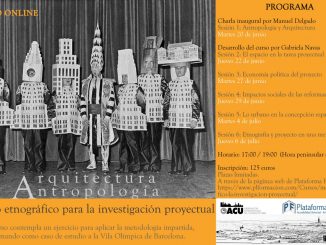
New course in Architecture and Anthropology, organized by OACU

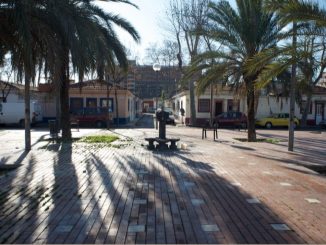
Horizontal anthropology in the margins of Barcelona

Conference in Bolonia: the subjective dimensions of vulnerability
On october 5th, in Bolonia (Italy) the Network for the Evaluation of the Subjective Dimensions of Vulnerability (REDISUV) Chile-Europe will meet for the second time, after the foundational Conference in Paris. The repeated natural catastrophes in Chile made evident the need for a more systematic study about the subjectivities of the communities affected, which are always the product of particular social, economical and political conditions. The program of the conference includes papers concerning natural desasters, but also approaches to the “urban” vulnerability, caused by neoliberal policies as the one our group has been studying in Barcelona.
- Bolonia, Thursday september 5th, 10am-6pm: “Vite invisibili: dimensioni soggettive della vulnerabilità sociale“, program in PDF.
- Davide Olori (2013) “Taking over the center to oppose evictions: the case of the Inmuebles Recuperados Autogestionados en Santiago de Chile” [PDF, italian]. “The urgency for housing after the earthquake forced towards the aggregation of both informal organizations (as neighbours, relatives, co-workers) and formal ones (political, parties…), so causing dynamics of rupture and recomposition among interests, hierarchies, relationships…”
- Fabio Carnelli studied ethnographically the consequences of the earthquake in L’Aquila (central Italy) some years after: the “militarized” solution brought again to life the traumas, and increased the vulnerability of the population. See Sismografie on Il lavoro culturale webpage. And also Rita Ciccaglione’s article, one year after the earthquake in Emilia Romagna.
- Caterina Borelli jsut published on academia.edu her PhD thesis about Sarajevo: “La ciudad post-traumática” (see also this older post)
- Stefano Portelli (2013) “Spatial reordering and social pathology in the periphery of Barcelona: the social impact of urban transformation”, intervención al XXI congreso del International Social Theory Consortium, Copenhagen, June 26-27th [Coming soon!]

Anthropology will either go public, or die
“The field that one might have expected to be one of the most useful and productive of the sciences had gone under, not because the people in it were no good, or the subject was unimportant, but because the structure of scientific principles that it tries to rest on is inadequate to support it“. Robert M. Pirsig, Lila (1991).
You wake up one morning and find yourself in the periphery of the Academy. Far from the established paths. It is the experience Jessica Collier and Rebecca Schuman describe in two recent posts (thanks Cate!), and maybe also the one suffered by David Graeber, one of the best anthropologists around, dismissed by Yale probably for political reasons. As Graeber itself has argued, anthropology has an innate difficulty to position inside academic contexts: but those of us who keep trying to bring anthropology to the society outside it, are often pushed into difficult or painful situations (as recently happened in Barcelona). Luckily, there is a new approach that is opening its way, that could draw a bridge among “inside” and “outside” the Academy, towards breaking these annoying barrers. Some examples:
- “WHY A PUBLIC ANTHROPOLOGY?” the new book by Robert BOROFSKY (Pacific University, Hawaii!) now available for download as an ebook; the first chapter also in PDF.
- ZERO ANTHROPOLOGY, a blog by Maximilian FORTE (Concordia University, Montreal!): it is a “project of decolonization”, with the aim to transform anthropology into something that is neither eurocentric nor elitistic. HERE
- Noël JOUENNE (2007) “Être ethnologue et hors-statut: vers une réelle valeur ajoutée?”. Journal des anthropologues (en ligne), 108-109, pp.69-85. [link][PDF]: being precarious, staying outside the Academy, could they be values added?

Conference on anthropology and urban conflict (Barcelona)
 All conferences will be transmitted in streaming from the congress webpage!
FINAL PROGRAM [check the webpage]:
All conferences will be transmitted in streaming from the congress webpage!
FINAL PROGRAM [check the webpage]:
- Wednsday, november 7th: 3pm Inaugural lecture - 6pm Public space desertions urbanity
- Thursday, november 8th: 10am Opening lecture - 11.30am Neighborhoods conflictivity coexistences - 4pm Movements speculation urbanism - 6pm Resistance gentrification urban transformation - 7pm Closing lecture
- Friday, november 9th: 10am Opening lecture - 11am Territory forced mobility violence - 12.30am Heterotopies marginality stigmatization - 4pm Urban practices illegalism social control - 6pm Closing lecture
- Saturday, november 10th: 9am Struggles for the city, the case of Barcelona - 11.30am Thematic guided walk: conflictive Barcelona - 6pm Civil desobedience and social change in visual anthropology

International conference on anthropology of urban conflict: call for papers
 From november 7th to 10th, 2012, in the faculty of geography and history of University of Barcelona, the first International Conference on Anthropology of Urban Conflict will be held, with the title: Desertions, countermovements and forced mobilities in the contemporary city. They had been organized by a series of research groups and individual scholars, and they aim to a critical exposition and reflection on urban phenomena associated to struggles and antagonist movements who take place in the city. In particular, they will focus on the agitations specifical to this moment of crisis, and on the modalities through which they are challenging the public order, the norms that mantain it and the authorities that defend it. A number of international lecturers have already confirmed their assistance: Monica Degen from London, Lia Yoka from Thessaloniki, José Fernandes from Porto, Stavros Stavrides from Athens, or Santiago Cirugeda from Sevilla. Some videos on the struggles in the city are also programmed, as well as a route of the rebel Barcelona. More info and details of the Call for papers on the conference webpage: http://espaiurba.org. For contact write to: conflictesurbans2012@gmail.com.
From november 7th to 10th, 2012, in the faculty of geography and history of University of Barcelona, the first International Conference on Anthropology of Urban Conflict will be held, with the title: Desertions, countermovements and forced mobilities in the contemporary city. They had been organized by a series of research groups and individual scholars, and they aim to a critical exposition and reflection on urban phenomena associated to struggles and antagonist movements who take place in the city. In particular, they will focus on the agitations specifical to this moment of crisis, and on the modalities through which they are challenging the public order, the norms that mantain it and the authorities that defend it. A number of international lecturers have already confirmed their assistance: Monica Degen from London, Lia Yoka from Thessaloniki, José Fernandes from Porto, Stavros Stavrides from Athens, or Santiago Cirugeda from Sevilla. Some videos on the struggles in the city are also programmed, as well as a route of the rebel Barcelona. More info and details of the Call for papers on the conference webpage: http://espaiurba.org. For contact write to: conflictesurbans2012@gmail.com. 
Anthropology of the Street, University of Barcelona
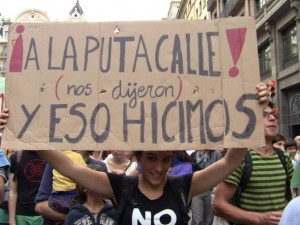 UB, Raval Campus (carrer Montalegre 6, Bcn), Aula 309, 3rd floor. Organization: Institut Català d'Antropologia
April, 12th, 6,30pm-8pm: Alternative parties and the dilemas of tradition (Adrià Pujol, Andres Antebi, Observatori de la vida quotidiana) :: Encounters and inflections between agency and rhetorics in catalan health system (Ariadna Solé, Marta Alonso, Alberto López Bargados, Grup de Recerca Islam de la Diàspora) :: Ethnographic research in Vallcarca neighborhood (Marco Luca Stanchieri, Etnografía dels Espais Públics)
13 abril 2012, 18,30-20h: Urban renewal and social change in la Mina neighborhood (Emanuela Bove, Martha Pelayo, Periferies Urbanes-ICA, download PDF of the research) :: The Rabassada Casino, utopia of the bourgeois leisure time (Sergi Yanes, Turiscòpia-ICA) :: Shanty towns in Barcelona (Mercè Tatjer, Xavi Camino, Oscar Casasayas, Grup d'estudis sobre Barraquisme)
UB, Raval Campus (carrer Montalegre 6, Bcn), Aula 309, 3rd floor. Organization: Institut Català d'Antropologia
April, 12th, 6,30pm-8pm: Alternative parties and the dilemas of tradition (Adrià Pujol, Andres Antebi, Observatori de la vida quotidiana) :: Encounters and inflections between agency and rhetorics in catalan health system (Ariadna Solé, Marta Alonso, Alberto López Bargados, Grup de Recerca Islam de la Diàspora) :: Ethnographic research in Vallcarca neighborhood (Marco Luca Stanchieri, Etnografía dels Espais Públics)
13 abril 2012, 18,30-20h: Urban renewal and social change in la Mina neighborhood (Emanuela Bove, Martha Pelayo, Periferies Urbanes-ICA, download PDF of the research) :: The Rabassada Casino, utopia of the bourgeois leisure time (Sergi Yanes, Turiscòpia-ICA) :: Shanty towns in Barcelona (Mercè Tatjer, Xavi Camino, Oscar Casasayas, Grup d'estudis sobre Barraquisme) 
Permanent Workshop on Urban Spaces
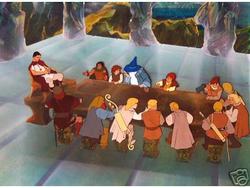 Our first workshop was on september 15th in the University of Barcelona: we plan to meet on the last thursday of every month, to share projects and reflections on the city and urban space, key issues in contemporary anthropology produced in the catalan capital. Participants in the workshop include: Omar Borrás,who is working on football among Cochabamba's immigrants in Barcelona; Andres Antebi, who is involved in a visual anthropology project on a small public square in Tangiers; Ariadna Mestre who studies Barcelona's Forat de la Vergonya as a theatralized space; Caterina Borelli who, after researching urban renewal of Raval, is now researching in Sarajevo; Marco Stanchieriwho works on the transformation of Vallcarca neighborhood; Muna Makhluffwho is doing her fieldwork in Barceloneta; Alba Marina who studies the nomadic network of "Salsa brava" in Barcelona; Miguel Fernández researching on the application of "civism" in Raval's calle Robadors; Marc Dalmau who focused on the impact of urban change of the Colonia Castells over the lifestyle of its inhabitants; and, obviously, Manuel Delgado for coordination and repression.
Our first workshop was on september 15th in the University of Barcelona: we plan to meet on the last thursday of every month, to share projects and reflections on the city and urban space, key issues in contemporary anthropology produced in the catalan capital. Participants in the workshop include: Omar Borrás,who is working on football among Cochabamba's immigrants in Barcelona; Andres Antebi, who is involved in a visual anthropology project on a small public square in Tangiers; Ariadna Mestre who studies Barcelona's Forat de la Vergonya as a theatralized space; Caterina Borelli who, after researching urban renewal of Raval, is now researching in Sarajevo; Marco Stanchieriwho works on the transformation of Vallcarca neighborhood; Muna Makhluffwho is doing her fieldwork in Barceloneta; Alba Marina who studies the nomadic network of "Salsa brava" in Barcelona; Miguel Fernández researching on the application of "civism" in Raval's calle Robadors; Marc Dalmau who focused on the impact of urban change of the Colonia Castells over the lifestyle of its inhabitants; and, obviously, Manuel Delgado for coordination and repression. 
Anthropology conference in León, september 6-9, 2011
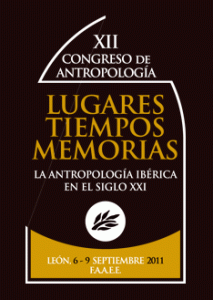 Webpage of the Conference: here. Timetable: here.
Some themes:
Webpage of the Conference: here. Timetable: here.
Some themes:
- Cities and citizenship, between global showcase and experience of places.
- The sense of anthropology today, responsibilities, dilemmas and actions.
- Ethnography of resistances.
- Contemporary ethnographies of political violences.
- Towards immateriality of heritage, politics culture and conflilct in the production of immaterial heritage.
- Housing from an anthropological point of view.

The Fire & the Word: more on militant ethnography
 As in the two previous posts on anthropological theory [post1 - post2], we keep linking texts that could help us to understand the contradictions of an ethnography "within" social activism, i.e. produced inside of a direct engagement with revolutionary political movements, rejecting neutrality and the so-called ethnographic distance, toward the development of an anthropology of action.
As in the two previous posts on anthropological theory [post1 - post2], we keep linking texts that could help us to understand the contradictions of an ethnography "within" social activism, i.e. produced inside of a direct engagement with revolutionary political movements, rejecting neutrality and the so-called ethnographic distance, toward the development of an anthropology of action.